- Friday, April 26, 2024
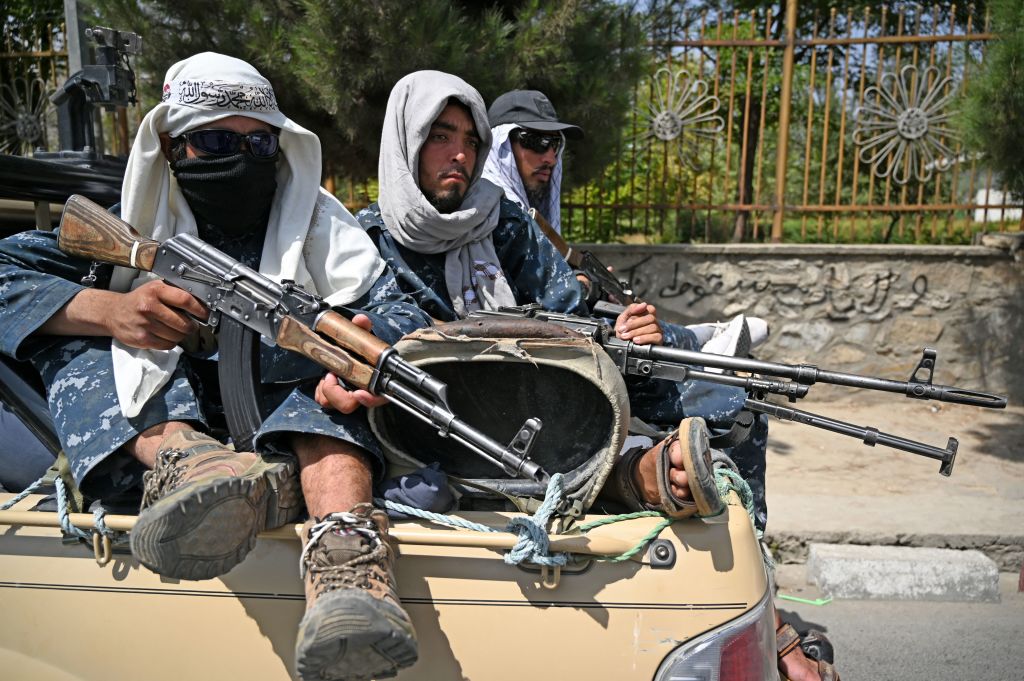
By: Shubham Ghosh
AFGHANISTAN has turned into a hotbed of terrorism after the US-led western forces have started their final leg of evacuation from its soil after an occupation that lasted almost 20 years. The international community has expressed serious concerns over the deteriorating security situation in the war-ravaged nation as the foreign forces’ withdrawal and the fall of the elected government in Kabul has not only seen resurgence of the Taliban but also other terror outfits and the devastating suicide attacks that happened at the airport in Kabul on August 26 have threatened peace and stability of the entire region.
Former US deputy ambassador to Afghanistan Earl Anthony Wayne recently spoke to India Weekly in an exclusive interview over the challenges that are emerging in Afghanistan.

The veteran diplomat, who is currently a Distinguished Diplomat in Residence teaching at American University’s School of International Service and also a Public Policy Fellow at the Woodrow Wilson International Center for Scholars and Co-Chair of its Mexico Institute Advisory Board, said the speed with which the Taliban swept to power in Kabul came as a surprise to most observers but experienced Afghan hands had warned of “tipping points” being reached in the history of the country where significant political shifts had taken place before.
ALSO READ: Taliban advances were inevitable, says Afghanistan expert Michael Kugelman
“Although it appeared to happen suddenly, in fact the Taliban had been laying the groundwork for this to happen for more than a year, at least since their March 2020 agreement with the US was finalized,” Wayne said when asked whether it was surprising to see the Taliban recapturing power at a lightning pace.
He said the extremist group took full advantage of the period after Washington started negotiating with them and particularly after the agreement was reached early last year, to deepen the group’s political and military presence throughout Afghanistan.
‘Afghanistan will turn into a terror base’
Wayne added that the Taliban built upon the US’s statements that it was withdrawing troops from Afghanistan to methodically cajole, threaten, persuade and bribe local and provincial leaders to convince them they had a better option in dealing with the extremist group and even yield to it.
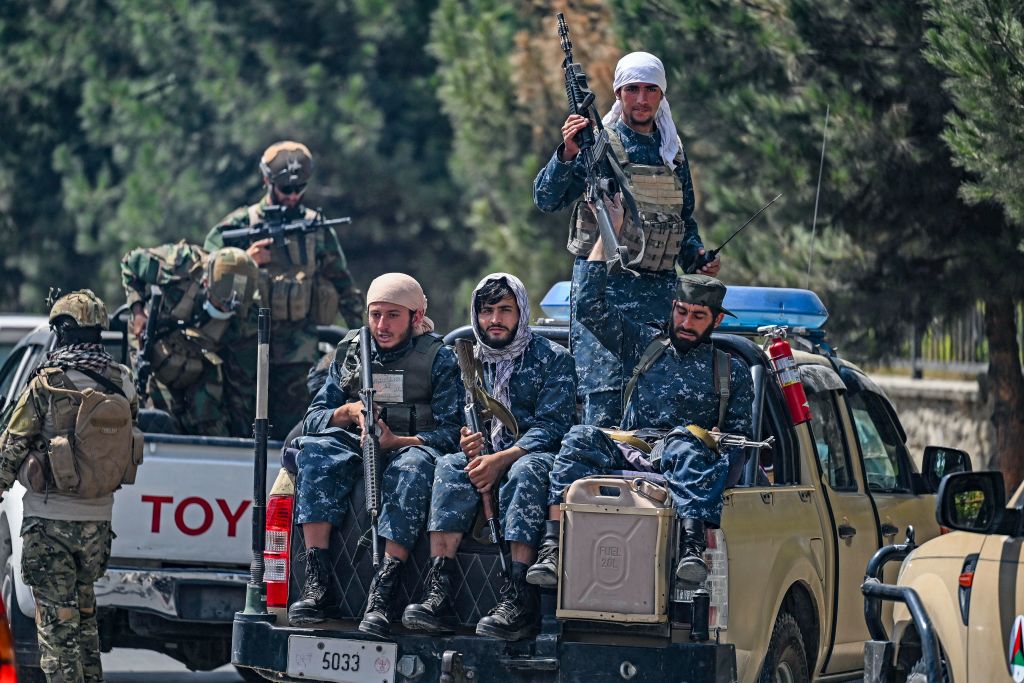
He also said that to make things worse in this period, the US took steps that undermined the legitimacy of the government in Kabul and dent the legitimacy of Afghanistan’s security forces and officials who increasingly felt abandoned by Washington.
“The Taliban never seriously engaged in Afghan-to-Afghan peace talks with the government in Kabul, even though they had promised to, and the US did not use and even reduced its levers to get them to do so,” Wayne, who had served as the coordinating director for development and economic affairs in Afghanistan before taking over as the deputy US ambassador to Afghanistan and worked closely with the former Hamid Karzai government there, said. He added that the civilian rulers in Kabul were unable to rally together and remained split and the civilian government in Kabul was seen more and more negatively by many Afghans as the American withdrawal progressed.
Is this precisely the plummeting morale of the Afghan forces that they could not put up a resistance against the Taliban despite being trained and guided by a superpower for so many years?
According to Wayne, it is important to recall that during the last several years, the Afghan forces led the fighting against the Taliban and took heavy casualties. He said while they successfully battled the Taliban and held key cities, the withdrawal of the American air cover and logistical support, combined with Washington’s message that the war was unwinnable, seriously dented their morale and capabilities.
“The Taliban continued to combine military pressure and offers of benefits, money, and political deals to expand its areas of control. Afghan forces in some areas fought until they ran out of ammunition. In some areas, they had not been paid for months and found payments from the Taliban essential to feed their families,” Wayne said, adding, “In other areas, tribal elders negotiated peaceful surrenders. And in still other areas, Afghan forces retreated to neighbouring countries or changed into civilian clothes and melted away into the population.”
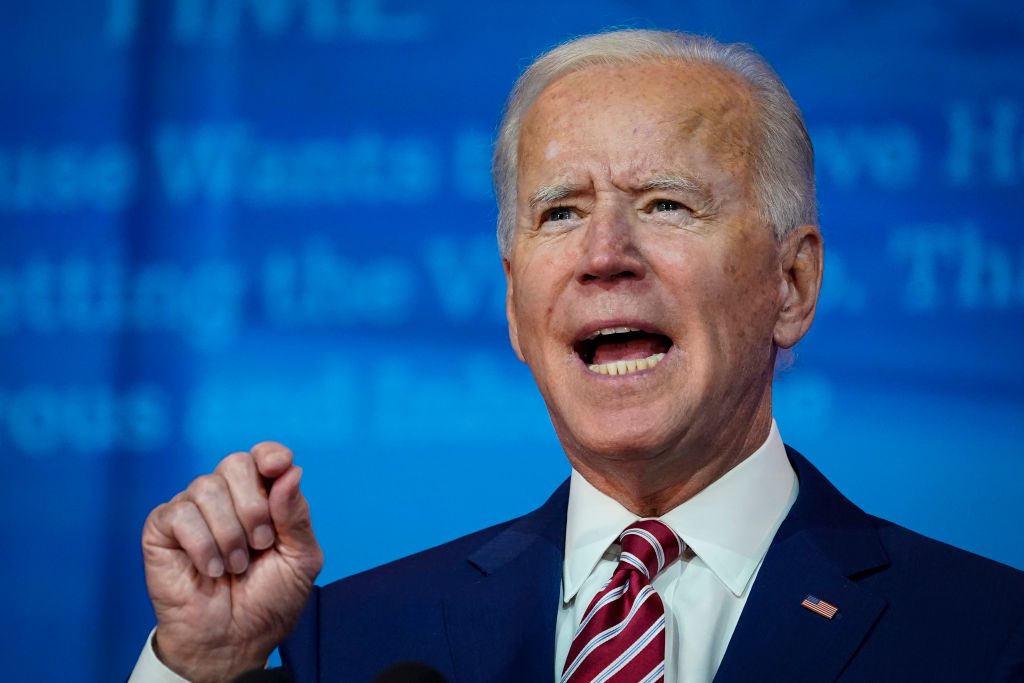
Taking a cue from the US’s message that the war in Afghanistan is unwinnable, did the Joe Biden administration make a mess in pulling out of Afghanistan or was it inevitable? The Republicans are criticising the Democratic leadership over the act of withdrawal but the previous Donald Trump administration also pulled out troops from northern Syria in 2019.
Wayne is convinced the US has its share of errors in the Afghanistan issue. He said the previous Trump administration’s poorly devised policies created a difficult situation for the US in Afghanistan. “The Trump team missed opportunities to press the Taliban to undertake serious negotiations,” he said.
According to the former ambassador who has also served in countries like Argentina and Mexico, when Biden announced his decision to withdraw troops from Afghanistan, there were still opportunities to provide clear and concrete signs that the US would continue to give a strong support to the government in Kabul.
“That did not happen. The US move did not significantly speed up processing of former Afghan employees of the US who had provided crucial and essential services which saved American lives and helped the US mission in Afghanistan. Tens of thousands of these people qualified for and had applied for special immigrant visas and should have already been processed and taken out of Afghanistan. The US administration was surprised by the rapid Taliban victory but that outcome was not inevitable,” Wayne told India Weekly.
Now given the Taliban have recaptured Afghanistan and the US is facing a major policy debacle there, what could be Washington’s future Afghanistan policy after this, given the deteriorating security scenario in the country?
Wayne believes that there are several priorities now. First of all, managing the situation post the Kabul airport blasts, is key. He lauded the US and partner diplomatic personnel as well as NGOs and other private actors in some cases who helped in evacuating a large number of civilians from Afghanistan successfully. The diplomat, however, rued that a large number of Afghans who helped the US and its allies and leaders of the country’s civil society and former officials will be left behind.
He said the August 26 attacks remind the world that preventing terrorism from emanating from the soil of Afghanistan must remain a top priority not only for the US but other countries in the region.
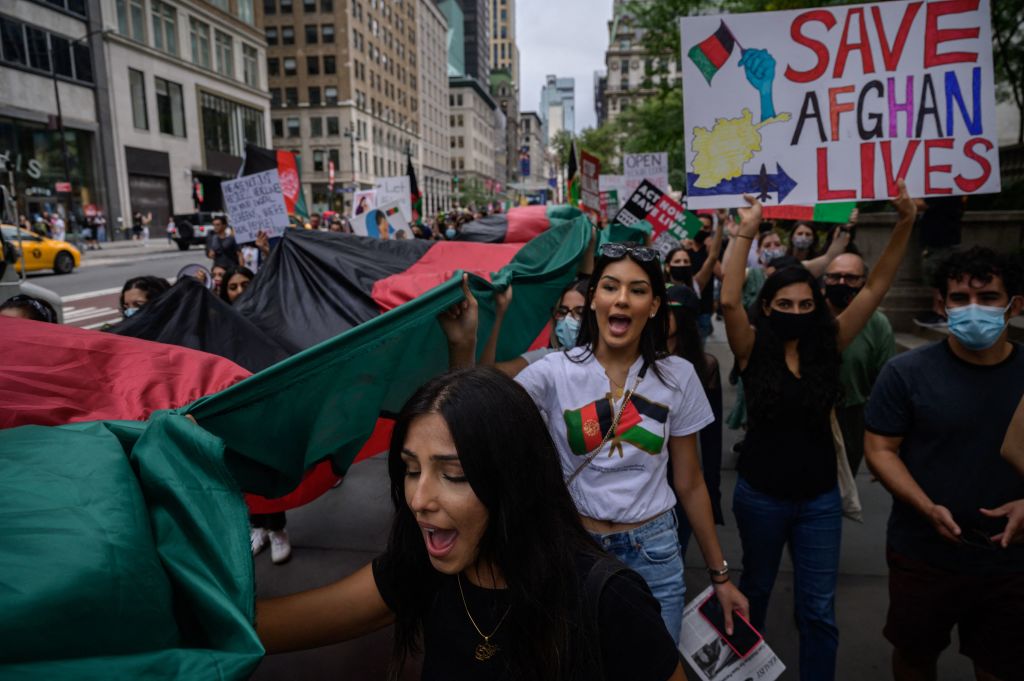
“The international community needs to rally together immediately to agree on a clear set of expectations to share with the Taliban that can make possible the future flows of international assistance into Afghanistan,” Wayne told India Weekly.
He said the Taliban might need more help to run Afghanistan compared the previous government because of their inexperience in governance and the current economic situation and that brings the world to another priority. He added that immediate attention is required to meet the country’s desperate humanitarian needs and establish humanitarian corridors of some type to allow the endangered Afghans to leave.
“These tasks also require working with countries of the region, many of whom are very worried about having to cope with massive flows of Afghan refugees before the Taliban rolled to victory, Afghanistan was already facing a humanitarian crisis fed by drought, COVID 19 and conflict. Hundreds of thousands have been displaced by fighting and millions need humanitarian aid. These numbers are likely to grow with the Afghan banking system shut down, food and other supply chains endangered, and the likely disarray of the Taliban trying to take on government services.
The Taliban are trying to form a government with representation from other parts of Afghan society which may well take time to negotiate as well assuming effective leadership of government ministries,” Wayne said.
He said donor governments, regional countries, international organisations and humanitarian NGOs should unite to hammer out common approaches to meet the demanding issues concerning Afghanistan. He said the work has already begun in blocs like G7 and international platforms like the United Nations Security Council and that countries like India have a key role to play.
Coming to India, does the Taliban’s return mark a serious turn of events, especially in Jammu and Kashmir? There is already an example from the past. In the 1990s, Jammu and Kashmir had witnessed disturbances in the wake of the erstwhile Soviet Union’s pull-out from Afghanistan. Could the US pull-out lead to a similar situation?
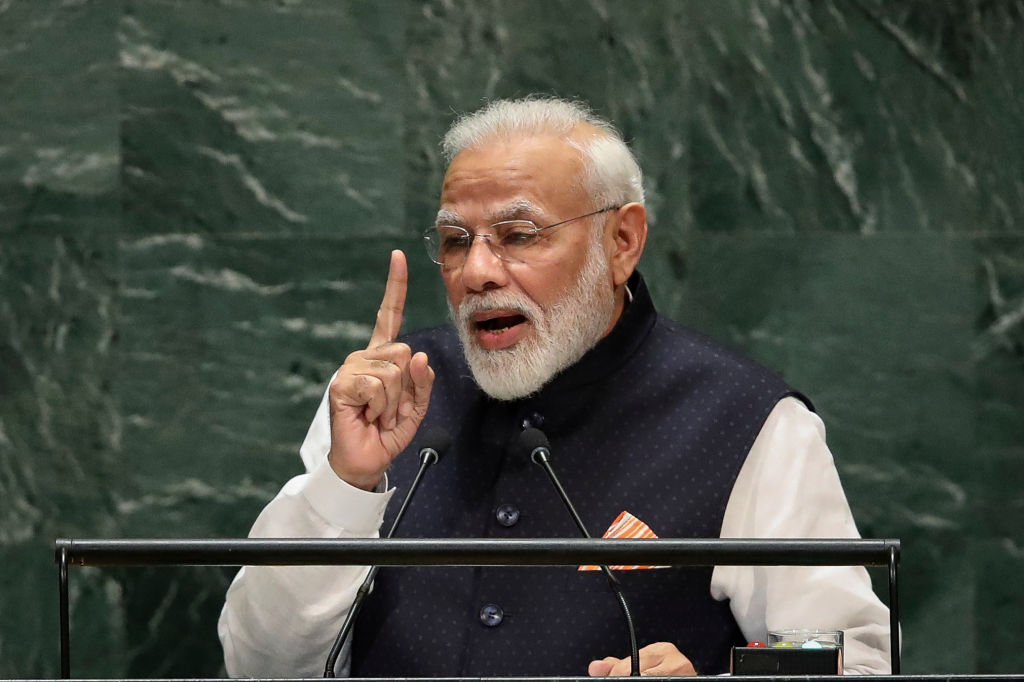
Wayne feels India and other countries need to re-evaluate the situation and pay a close attention to the potential threats that emanate out of the current situation in Afghanistan and work closely with its international partners in trying to build bulwarks against fresh terror attacks.
In the context of Pakistan, which also stands to see a significant change in the equations in its western neighbourhood, the former deputy ambassador to Afghanistan said one still needs to carefully watch the developments in Afghanistan and how the Taliban govern the country before reaching a conclusion on the potential impact of the change in Kabul on Pakistan and South Asia.
The US-led west’s withdrawal from Afghanistan also creates opportunities for anti-US nations like Russia, China and Iran to make some serious geo-strategic gains in Afghanistan and the adjoining region. Wayne agrees with the point and says the three nations mentioned above are trying to portray Washington’s actions negatively and prove the point that it is an unreliable partner.
“They will continue to do that in order to gain advantage with other countries in the region. The United States needs to undertake vigorous diplomacy to strengthen its credibility, including with serious outreach to countries in the region, including India,” he said.
Wayne, who believes that it is too early to tell about the electoral ramifications of the developments in Afghanistan in the US particularly in the context of the 2024 presidential election, said that assessment of the US’s 20-year efforts in Afghanistan is a massive undertaking.
“There were opportunities to limit US involvement, such as during the George Bush administration when the Taliban offered to negotiate a surrender, which was declined. Some may well think the US should have pulled out after Osama bin Laden was killed. There were missteps along the way, such as diverting so much effort to Iraq. However, the US also undertook valuable programs such as investing in the education and health of Afghans and fostering a very dynamic civil society. One of the challenges and opportunities now is to draw good and clear lessons from this experience and to go forward with modesty to work with partners and allies when tackling similar challenges in the future,” he said.
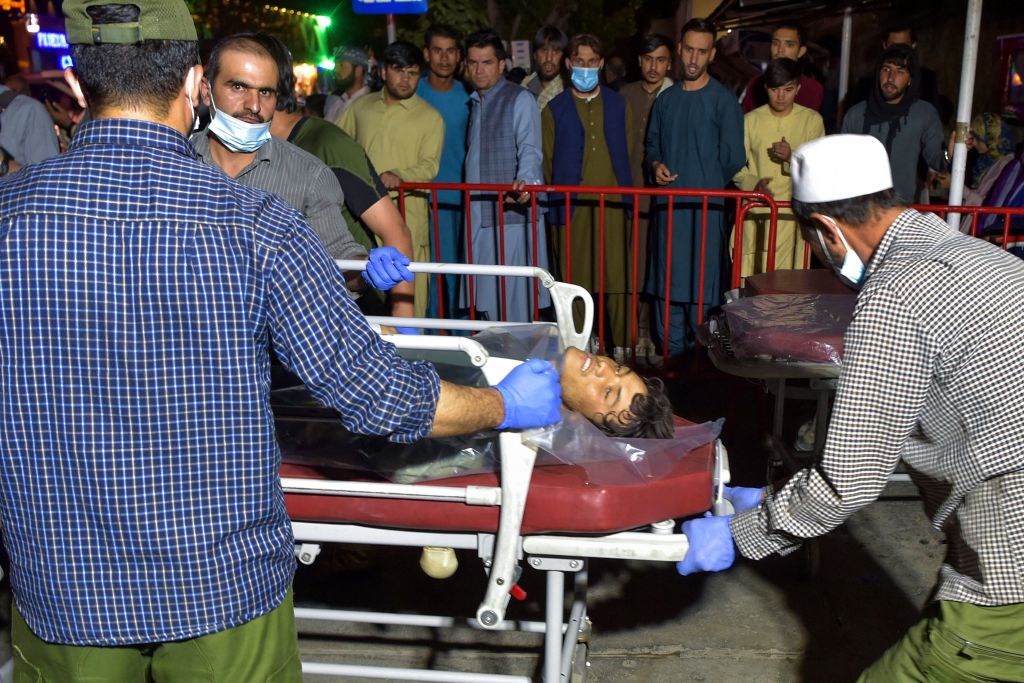
Finally, do the August 26 terror attacks suggest that things are even more complicated than what is being perceived? The presence of the Islamic State (IS) could make the challenges even more daunting and what happens if it grows even stronger under Taliban rule?
According to Wayne, the Islamic State-Khorasan group will pose a serious security threat to even the new Taliban regime and turn into a menace as other Sunni radicals from Afghanistan and the region seek to join them to promote jihad.
He said the IS-K (Khorasan)’s lethal and tragic terror attacks at the Kabul airport underscore the danger from continued radical terrorists based in Afghanistan. The IS-K has been an enemy of the Taliban, the previous Islamic republic and the US. This group made up of fundamentalist Sunni Muslims has repeatedly shown willingness to attack vulnerable civilian targets and hence the US and other governments in the region will need to carefully monitor the IS threat and do their best to bolster cooperation among them to defeat the terrorists.
![]()